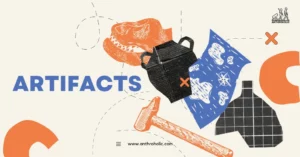AI Answer Evaluation Platform Live Now. Try Free Answer Evaluation Now
Unani
Unani, a term originating from the Greek word ‘Ionian’, refers to a system of medicine largely based on Greek principles. This medical system emphasizes the balance of bodily fluids and has been practiced predominantly in South Asia and the Middle East.

Historical Background
Origin and Spread
- Greek Influence: Unani medicine can be traced back to the teachings of Hippocrates and Galen. Their works laid the foundation for this medical system [1].
- Islamic Golden Age: The system flourished in the Islamic Golden Age, with scholars like Ibn Sina (Avicenna) contributing significantly to its development [2].
- South Asia Expansion: Unani medicine was introduced to India around the 10th century by Persian scholars and became an essential part of the subcontinent’s medical practice [3].
Table 1: Key Historical Figures
| Name | Contribution | Era |
|---|---|---|
| Hippocrates | Father of Unani Medicine | 460-370 BCE |
| Galen | Expanded the theory | 130-210 CE |
| Ibn Sina | Author of “The Canon of Medicine” | 980-1037 CE |
Fundamental Principles
The Four Humors
Unani medicine is based on the balance of the four humors:
- Blood (Dam)
- Phlegm (Balgham)
- Yellow Bile (Safra)
- Black Bile (Sauda)
A disease is believed to occur when there’s an imbalance among these humors [4].
The Four Elements
- Earth
- Water
- Fire
- Air
These elements correspond to the four humors and are integral to the understanding of the human constitution in Unani medicine.
Practices and Treatments
Diagnosis
- Pulse Diagnosis: A method to understand the balance of humors.
- Urine Examination: Provides insight into bodily functions.
Therapeutic Approaches
- Dietary Regulations: Tailoring diets to balance the humors.
- Herbal Medications: Use of herbal concoctions for healing.
- Surgical Procedures: In some cases, surgical interventions may be applied.
Global Influence and Adaptation
Unani has left an indelible mark in various cultures:
- Middle East: Continues to be practiced in countries like Iran.
- South Asia: Integral to medical practices in India, Pakistan, and Bangladesh.
- Western Influence: Adaptation in some western holistic healing practices.
Contemporary Challenges
- Standardization: Lack of uniform standards in practice and education.
- Integration: Difficulty in integrating with modern medical practices.
- Research and Development: Limited scientific research to support therapeutic claims.
Conclusion
Unani medicine is a rich and complex system rooted in ancient Greek principles. Though it has evolved and spread across different cultures, it faces challenges in the modern medical landscape. Continued research, standardization, and integration with contemporary medical practices may pave the way for Unani medicine to contribute effectively to global healthcare.
FAQs about Unani
References
[1] Majno, G. (1975). “The Healing Hand: Man and Wound in the Ancient World.” Harvard University Press. https://doi.org/10.1177/030098587601300410
[2] Ullmann, M. (1978). “Islamic Medicine.” Edinburgh University Press.
3] Mehta, P.H. (1978). “A Short History of Unani Medicine in India.” Studies in History of Medicine, Vol. 2, No. 4.
[4] Ahmad, I. (1983). “Introduction to Al-Umur Al-Tabi’yyah (Basic Principles of Unani Medicine).” All India Unani Tibbi Conference.




